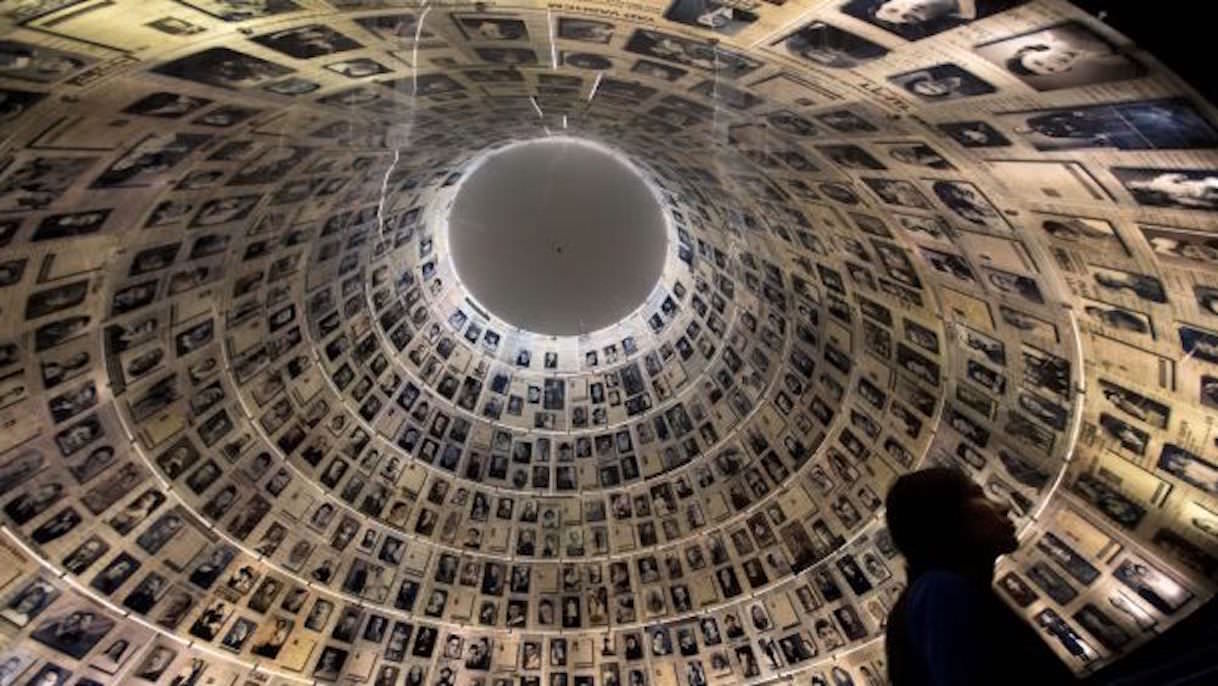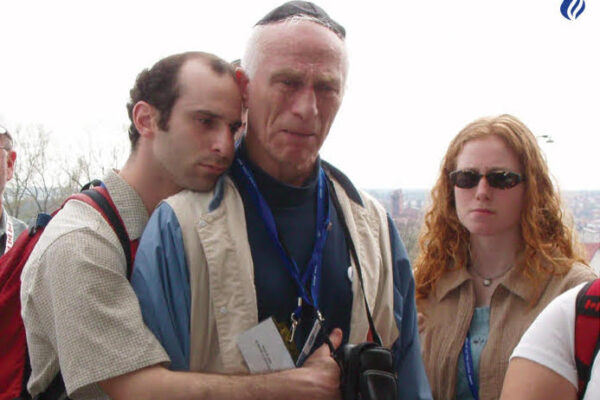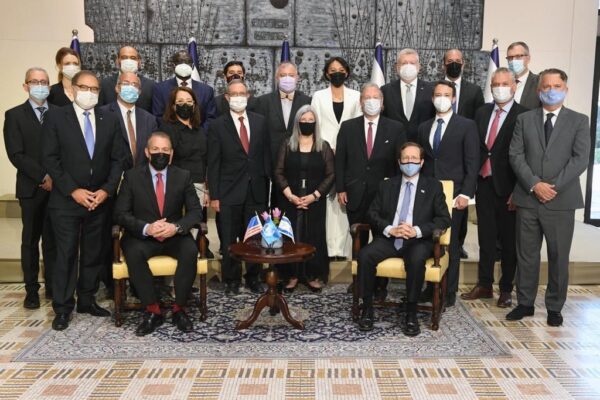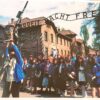Israeli research institute says effort to forbid claims that Poles collaborated during Holocaust ‘makes Poland part of the anti-liberal movement picking up speed worldwide.’
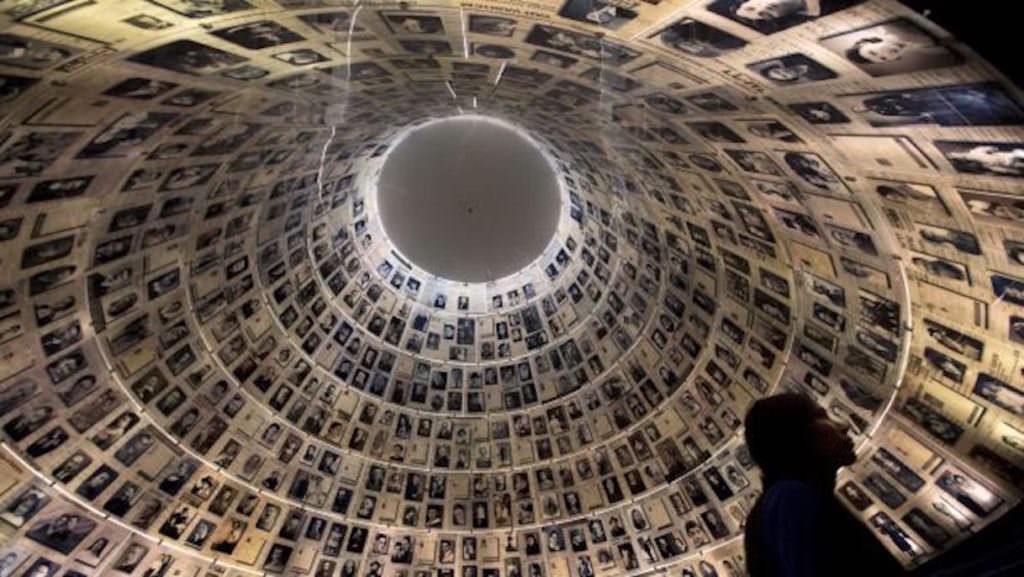
Hall of Names, Yad Vashem Holocaust memorial in Jerusalem. January 24, 2016. Credit: AP
Yad Vashem officials have harshly criticized the Polish bill that forbids claiming that Poles collaborated during the Holocaust and warned that its approval in parliament would be considered Holocaust denial and a regression in Poland’s facing its dark chapters.
Last week the Polish cabinet approved the bill that mandates three years in prison and a fine for anyone claiming that the Polish people or state were responsible for the Nazis’ crimes or collaborated with them. The Polish parliament is expected to approve the bill, which its initiators say protects Poland’s good name.
“The new bill is very close to Holocaust denial,” is “worded like the laws of [President Recep Tayyip] Erdogan in present-day Turkey and makes Poland part of the anti-liberal movement picking up speed worldwide – and that’s a big disappointment,” said Prof. Yehuda Bauer, a leading Holocaust scholar and Yad Vashem’s academic adviser.
Bauer added that among the people who may be harmed by the Polish bill are “first and foremost those who will claim that there were Poles who murdered Jews – in other words, all the historians in the West and Israel who have studied the subject.”
“This thing really did happen. Everyone knows that there were Poles who took part in the murder of the Jews. To claim otherwise is a denial of the research that has already proved these things, and in my opinion is also Holocaust denial,” Bauer said.
He noted that it was Polish historians who revealed the role of Poles in the murder of Jews in the Holocaust. “There are very important historians active in Poland who have published and are publishing their research that points to the widespread participation of Poles in the murder of Jews,” Bauer said.
“My demand as a scholar is that the Polish government refrain from passing such laws. It’s not the business of the government, or of any political body, to decide what did or didn’t happen in history.”
Bauer also mentioned Poland’s emergence from communism in 1989.
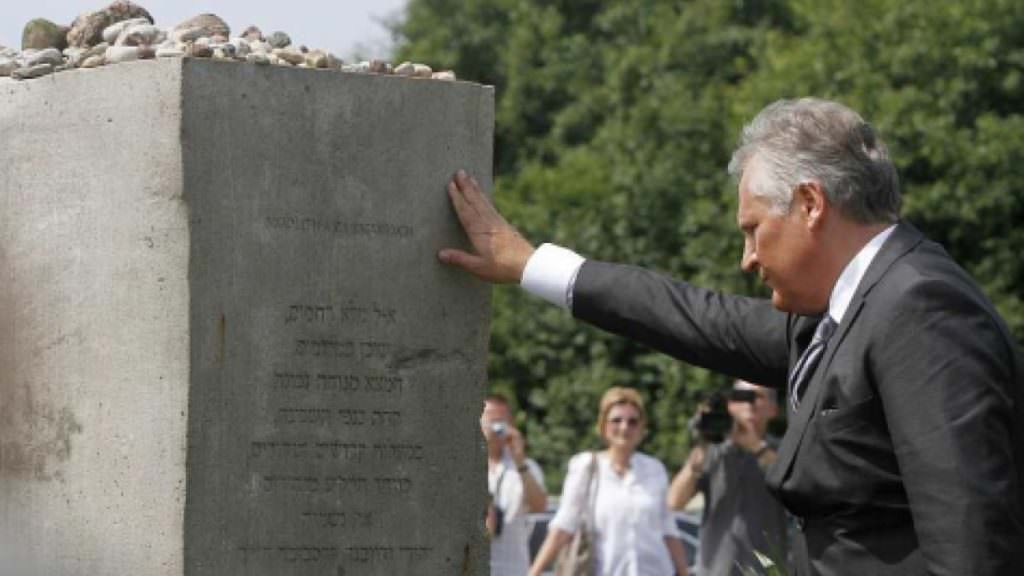
Former Polish President Alekdander Kwasniewski attends a memorial to the Jedwabne massacre in July 2011. Credit: AP
“The fall of communism was in no small measure a result of Polish society’s strong stand against the communist dictatorship,” he said. “The new bill is very reminiscent of the methods of the communist regime that was brought down, and should be vehemently opposed.”
Yad Vashem Chairman Avner Shalev also condemned the bill; he has sent letters to Anna Zalweska, the Polish education minister, and to Jarosław Szarek, the new chairman of the Polish Institute of National Remembrance – a government research organization that would implement the law.
Last month Zalewska denied the participation of Poles in two pogroms against Jews – one in Jedwabne in 1941 and one in Kielce in 1946. Historians at the Institute of National Remembrance claimed last month that the Germans were responsible for the massacre in Jedwabne and even called for the mass grave to be opened.
Shalev protested. “I am certain, as are bona fide Holocaust historians around the world, including in Poland, that solid and comprehensive historiographical evidence leaves no doubt in this respect,” he wrote to Zalewska.
“The active and extensive participation of Poles in the initiation and implementation of these two atrocities is an extensively documented historical fact. To claim otherwise is to facilitate, albeit unintentionally, a dangerous form of Holocaust distortion.”
As Shalev put it, “Attempts to ignore the fact that there were instances during and after World War II in which Jews were murdered on Polish soil by their Polish neighbors not only undermine long-standing and meticulous academic research, but are also liable to damage years of worthy efforts to promote understanding between Poles and Jews. Surely, this was not your intention, and neither is it your goal as minister of national education.”
In his letter to Szarek of the Institute of National Remembrance, Shalev added that the statements denying the part of Poles in murdering Jews “also dissuade Poland’s citizens from continuing the long and admirable process of national self-examination that Polish society has been pursuing since your nation emerged from totalitarian communist rule.”
He added that “the Polish experience illustrates how the candid search for historical truth can help advance communities and cultures, and how historical pain can be uncovered, addressed and, sometimes, relieved.”
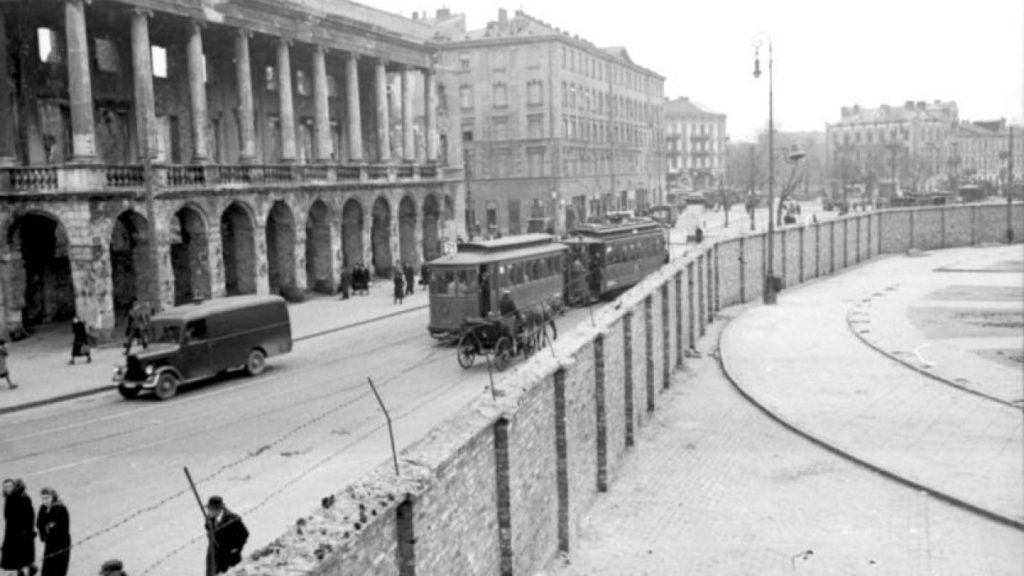
The Warsaw Ghetto wall near Lubomirski Palace, May 24, 1941. Credit: Bundesarchiv via Wikimedia Commons
Prof. Dan Michman, head of Yad Vashem’s International Institute for Holocaust Research, said the new bill included statements that are “ahistorical” and reflect a “regression” in Poland’s dealing with its past since the end of communism.
Michman referred to the objective of protecting Poland’s good name.
“The previous process undergone by Poland – a scholarly confrontation with its past – is what won the country great prestige worldwide and improved the Polish image,” Michman said. “If you halt the research that shows these dark places, in the end you harm your image.”
He noted that Poland’s Institute of National Remembrance has already acknowledged the role of Poles in the murder of Jews in the Holocaust.
“I think to come and negate this is really absurd,” Michman said. “But as I always tell my students, in history anything is possible.”
Originally Published HERE

